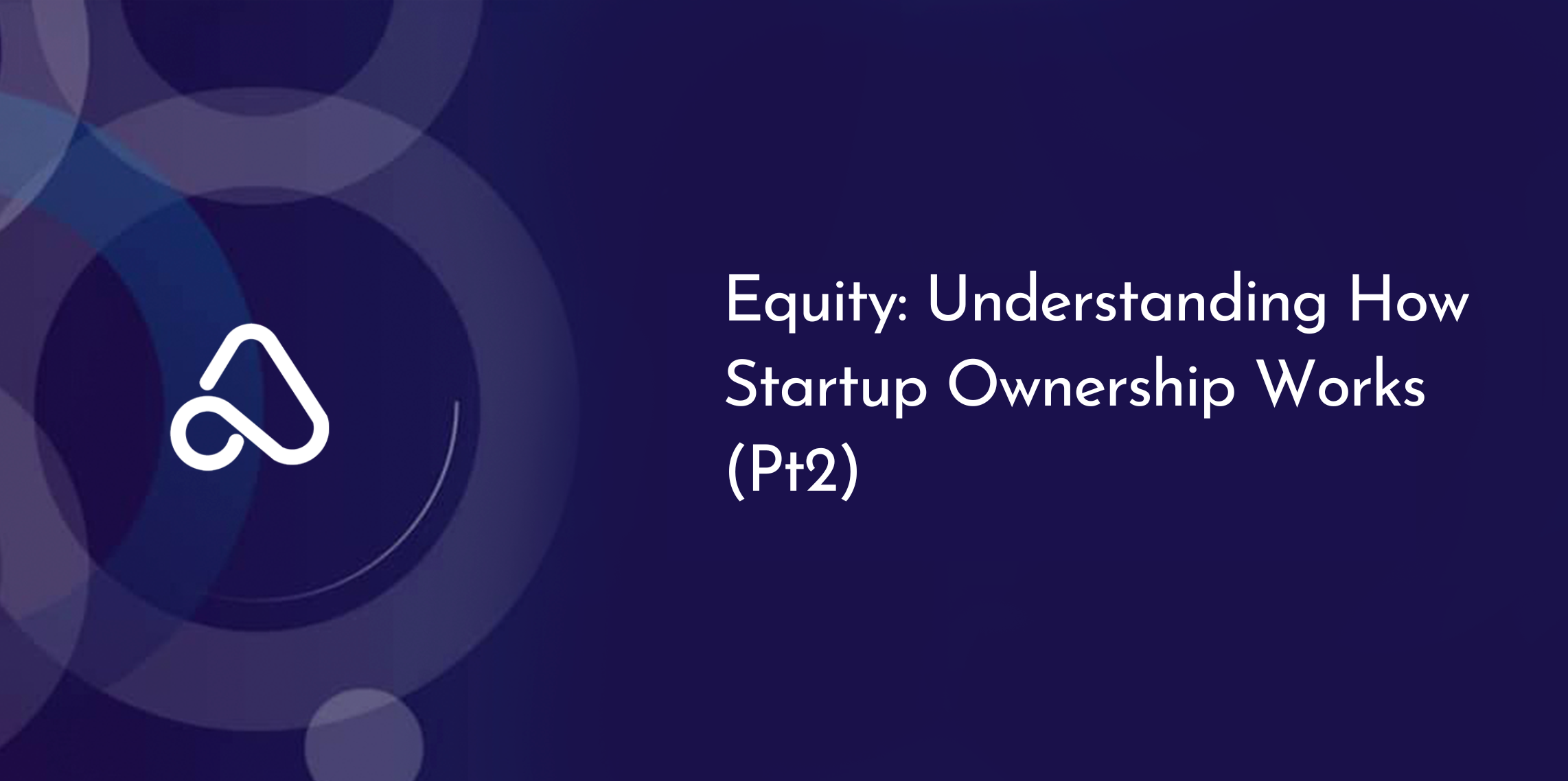Aidi — Equity: Understanding How Startup Ownership Works (pt2)
Return
In our last article, we broke down the basics of equity – what it is, how shares and ownership percentages work, and why it matters.
But knowing what equity is doesn’t automatically mean you’ll manage it well. Many startup founders, especially in Africa’s fast-growing ecosystem, make costly (and avoidable) mistakes that can affect their startups in the long run. Some lose control of their own companies, lose investor confidence, and in some cases, internal fights between founders are birthed. This doesn’t have to be the case with your startup, hence, this article.
So let’s talk about some of the most common mistakes founders make with equity, and how you can avoid them.
Common Equity Mistakes Founders Make (and How to Avoid Them)
- Giving Away Too Much Too Soon: When you’re just starting out and trying to raise money or bring on advisors, it’s tempting to give a big equity slice to the first person who offers support, whether it’s an early investor, an advisor, or even a friend who “believes in you” without thinking about the long-term impact. You might be tempted to offer an early investor 40% because they wrote your first check or promise an advisor 10% just for introductions. The problem, however, is that when you give away too much too early, you leave little room for yourself, future employees, or later investors; and this signals ‘poor judgement.’ Advisors usually don’t need more than 0.25–2% and early investors don’t need half of your company. Protect your ownership because you’ll need it later.
- Forgetting About Employee Stock Options (ESOPs): Your team is one of your biggest assets, but many founders either ignore creating stock options or set them up poorly. Some even wait until an investor forces them to create a pool, while others set up huge pools (like 20–30%) that aren’t even used, which dilutes everyone unnecessarily. What you can do instead is to create a reasonable ESOP early (typically 5–10%). Use it to reward the right people and attract key talent. Also, make sure your team actually understands what equity means and how it works because equity only motivates people when they get it.
- Unclear Founder Agreements: This one is a silent killer. Two or three friends start a company, but no one writes anything down – no vesting schedules, no clear roles. Then, when a co-founder leaves, they walk away with a massive equity stake they’re no longer contributing to. A smart tip? As soon as you and your friend(s) agree to become founders of a startup, put agreements in writing. Use a vesting schedule (usually 4 years with a 1-year cliff). That way, if someone leaves early, they don’t take a huge chunk of the company they’re not helping to build. It may look awkward at first, but it avoids bigger fights later.
- Messy Cap Tables: Your cap table is basically your company’s ownership map, not just some random spreadsheet. Yet many founders keep messy records, forget to update after agreements, or rely on casual WhatsApp promises (“Don’t worry, I’ll give you 5% later”). When it’s time to raise money, all the investors will see is CHAOS and RISK, and they won’t touch a cap table full of confusion. Always keep your cap table clean and up-to-date. Use proper equity management tools like Carta, Pulley, or even a well-maintained legal spreadsheet if you’re early-stage. Document everything formally and keep it updated.
- Ignoring Dilution: Many first-time founders assume that if they own 60% of their company today, they’ll always own 60%. Then fundraising starts, and reality sets in. After a few rounds, they’re shocked to find themselves with 10% or less. Every fundraising round dilutes ownership. If you’re not planning ahead, you may wake up after Series B with less than 10% in your own company. It's always advisable to model for future rounds. Work with lawyers, accountants, or experienced advisors to project what your ownership looks like after multiple raises to avoid surprises later and to set realistic expectations.
- Not Thinking About the Exit Early: Equity mistakes often show up at the exit stage, when the company is being acquired or preparing for IPO. Founders sometimes realize too late that preference shares, early promises, or bad agreements mean they walk away with much less than expected. Always think long-term from day one. Ask yourself: If we sold tomorrow, how would the money be divided? Structure your equity with that in mind.
Managing equity can be your biggest headache if you handle it poorly from the beginning. Think of equity as the foundation of your startup’s house. If it’s shaky, the whole structure is at risk, but if it’s solid, you can build something that lasts and can hold the weight of your company’s growth, investors, and eventual success.





